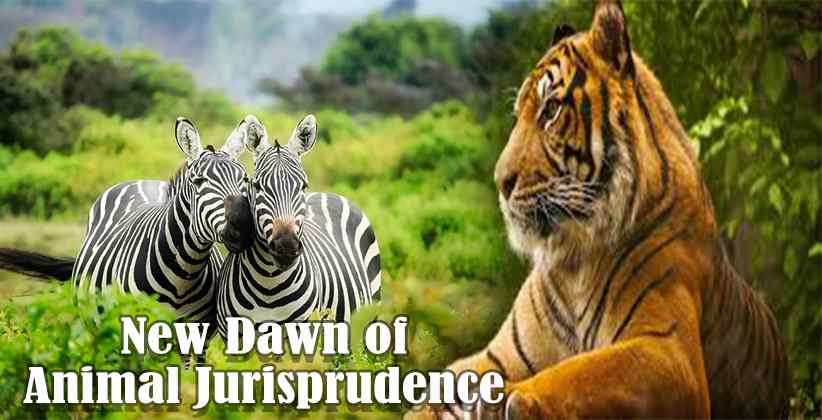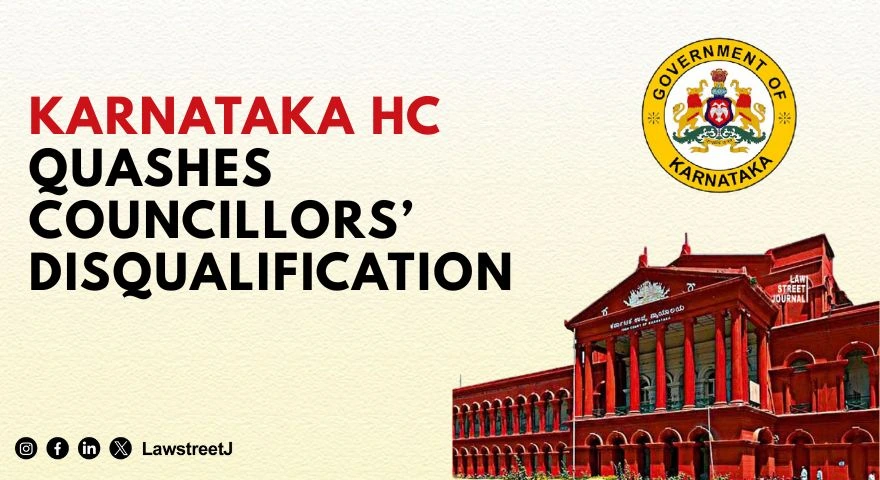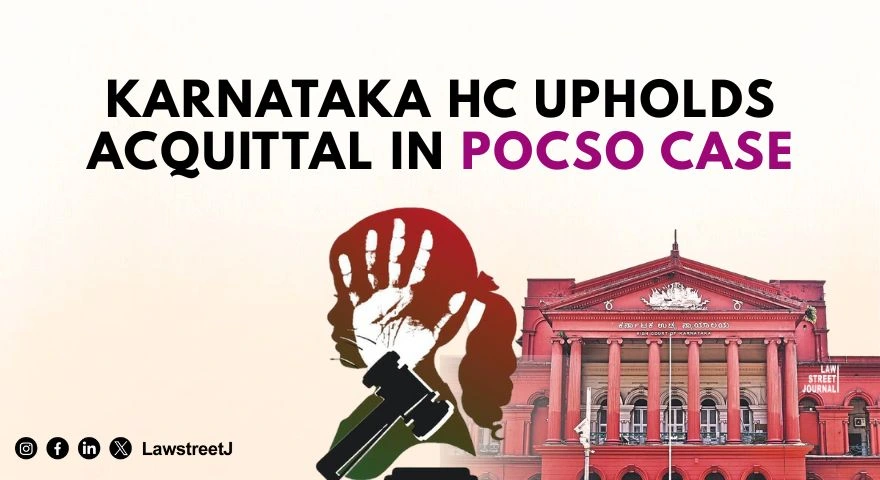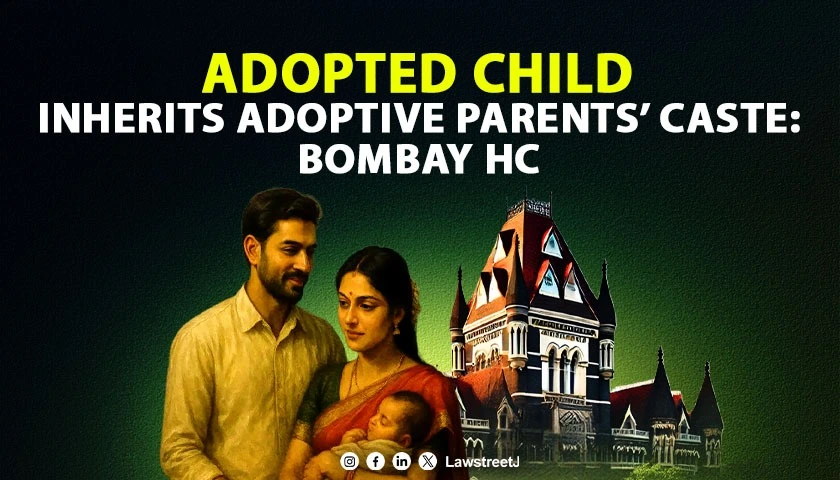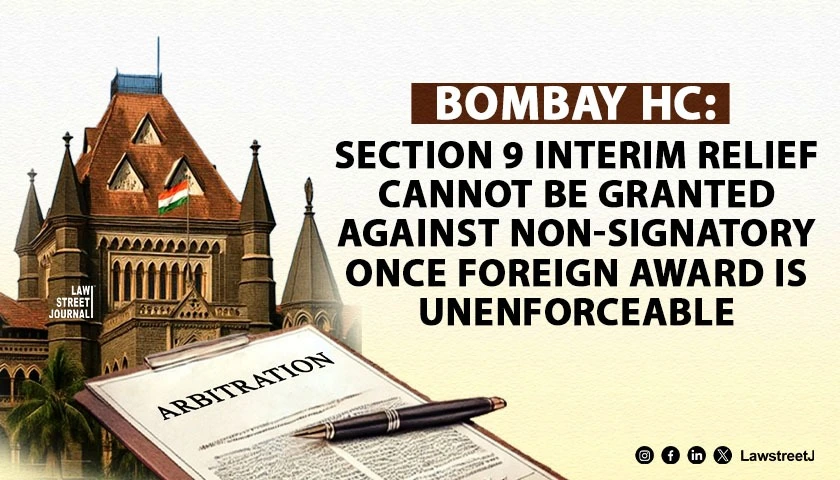"The greatness of a nation and its moral progress can be judged by the way its animals are treated". Mahatma Gandhi
Introduction:
The Punjab and Haryana High Court in Karnail Singh and Ors v. State of Haryana [i] while delivering 104-page long judgement on May 31, 2019, recognized all animals in the animal kingdom, including avian and aquatic species as legal entities. This judgement is addition to the recent trend where courts have started to tilt the balance from an anthropocentric perspective to a eco-centric viewpoint when it comes to animals and environmental matters.
In this case, Appellants were convicted by trial court under S. 4[B] [ii] read with S. 8[iii] of the Punjab Prohibition of Cow Slaughter Act, 1955, which is applicable to the State of Haryana, as they didn't have any export permit while they were carrying 29 cows in two trucks from Haryana to Uttar Pradesh. They appealed to the Additional Sessions Judge, who, while upholding the conviction imposed upon by Judicial Magistrate 1st class, reduced the sentence from 2 years to 6 months. Aggrieved by the judgement, they knocked the doors of the Punjab and Haryana High Court (hereinafter the Court), which upheld the conviction but sentenced to imprisonment to the period already undergone, to relive the appellants from trauma and agony they were suffering since the institution of criminal proceedings 15 years ago. The judgement could have ended them, but the Court chose to take the judicial note of the way these 29 cows were packed in a cruel and brutal manner, which is discussed in the next part.
Judicial note of cruelty against animals:
The judgement is very much elaborate, detailed, and written in a very chronological manner whereby the rights are conferred on animals by giving them the status of a legal person. Many acts and rules are discussed in the beginning to appreciate the legislative contribution in safeguarding the animals. The Court discusses the following legislative and executive enactments.
- Rules laid down in the Haryana Motor Vehicles Rules, 1993, for compliance of certain conditions to be followed while carrying animals in a goods carriage.
- The Haryana Gauvansh Sanrakshan and Gausamvardhan Act, 2015, which debars slaughtering or export for the slaughtering of any cow. It also has provisions for the establishment of institutions to accept, keep, maintain, and care the infirm, injured, stray and uneconomic cows.
- Union legislation Prevention of Cruelty to Animals Act, 1960 (hereinafter PCA Act), which is the most elaborate enactment concerning animals, prescribes punishment if anyone treats animals with cruelty and also has provision for treatment and care of animals. Rules for the Act have been framed under the Prevention of Cruelty to Draught and Pack Animals Rules, 1965. The mode of transport of domestic animals has been laid down in Transport of Animals Rules, 1978 (Here the Court took judicial note of the fact that the cows were transported in breach of Rules, 1978). When animals are transported on foot, rules under the Prevention of Cruelty to Animals (Transport of Animals on Foot) Rules, 2001 have to be followed.
- Central government has framed Prevention of Cruelty to Animals (Aquarium and Fish Tank Animals Shop) Rules, 2017, which bans selling of aquatic animals caught by destructive fishing practices, Prevention of Cruelty to Animals (Dogs Breeding and Marketing Rules, 2017, which prohibit breeding of dogs without registration and Prevention of Cruelty to Animals (Pet Shop) Rules, 2018 which prohibits operation of pet shops without registration.
- Central legislation The Prevention and Control of Infectious and Contagious Diseases in Animals Act, 2009 not only prevents the spread of disease in the state but from one state to another, but also meets the international obligation of India for facilitating import and export of animals and animal products.
Judicial Approach in the Judgment:
Before giving a critique of the judgement, let us see the way the Court has arrived at its decision.
1: Juristic Person:
First jurisprudence of juristic entity is discussed, for which certain case laws and legal principles are analyzed where personhood is granted to corporations, idols, holy scriptures, and rivers. In Yogendra Nath Naskar v. Commission of Income-Tax, Calcutta [iv] , it was held that a Hindu idol is a juristic entity capable of holding property, and its possession and management is entrusted with shebait or manager. In Shiromani Gurudwara Prabandhak Committee, Amritsar v. Shri Som Nath Dass&Ors [v], the Supreme Court had reasoned that the concept of 'Juristic Person' has arisen out of necessities and for sub-serving the needs and faith of society and it is done to recognize the entity as a person in law, which otherwise it is not. Conclusion is drawn in a very simplistic manner that a person for the purpose of jurisprudence is an entity (not necessarily a human being) to which rights and duties can be attributed. The Court also recognized the inevitability of the evolution of a fictional personality as a juristic person for the bigger thrust of socio-political development. This entity, for all-purpose, acts as a natural person, not by itself, but through a designated person, and this relationship is akin to that of a minor and a guardian.
2: Animals and International Approach:
The Court notes that there is not a single international agreement that seeks to ensure the welfare and protection of animals. The anguish of the Court is seen in the judgement where it says that the international community should hang their head in shame over the fact that the United Nations has till date safeguarded only rights of human beings, and not of other species. Germany amended its Constitution in 2002, which made it obligatory for "State" to respect "animal dignity". Both the Animal Welfare Act, 2006 (UK), and the Animal Welfare Act, 2010 (Norway), are enacted to protect animals from pain and suffering.
3: Animals and the Indian Constitution:
Five internationally recognized freedoms of animals that are listed below [vi] have been discussed with reference to the rights guaranteed to the citizens under Part III of the Indian Constitution.
- freedom from hunger, thirst, and malnutrition;
- freedom from fear and distress;
- freedom from physical and thermal discomfort;
- freedom from pain, injury and disease; and
- freedom to express normal.
The Court says that these freedoms which find a reference in S. 3 [vii] and S. 11 [viii] of the PAC Act, are conferring statutory rights on animals and that needs to be elevated to the status of a fundamental right as is done by Germany and many other countries, so as to secure concrete honour and dignity for animals. As animals are recognized as "property" capable of being possessed by humans, the Court says that Article 19(1)(f) no more there, and the right to property only recognized as a legal right, Parliament is in a better place to protect the rights of animals. The Court also says that S. 3 and 11 of PAC Act should be read along with Article 51A(g) and (h), which will create Magna Carta of animal rights.
4: Animals and Indian Legislations:
The Court criticizes the Tamil Nadu Regulation of Jallikattu Act, 2009 (hereinafter TNRJ Act) for it being anthropocentric legislation and not for the welfare of animals, as it only seeks to safeguard the interest of organizers and the spectators and not of animals itself while the game of Jallikattu is conducted. This act speaks of "taming of bulls," which causes strain, stress, inflicts pain and suffering which the Union legislation the PAC Act seeks to prevent under S. 11. The Court concludes that rights conferred to the animals under S. 3 of PAC Act are essentially taken away by TNRJ Act, and they by declares it ultra-virus to the PAC Act.
In Animal Welfare Board of India v. A. Nagaraja & Ors, [ix] their lordships had held that animal welfare laws (most of them are listed above) are to be interpreted, keeping in mind the welfare of animals and species subject to only just exceptions of human necessity.
Major discussion in the present judgement revolves around the PCA Act, which is welfare legislation, and the Court mandates that the provisions of the law are to be construed liberally in favour of weak and infirm animals keeping in mind the directive principle of State policy (Article 48 and 48A). Games of Jallikattu and Bullock cart are discussed with respect to S. 3 of the PCA Act, where Court held that this Section doesn't confer any right on the organizers of the game but, it is casting duties and obligation on them.
5: Animals and Religion:
The Court asks society to show compassion towards all living creatures and specifically mute animals and speak on behalf of them. The Court draws reference to Ahimsa (Non-violence) from different religions. Holy books of Hindu religion like Rig Veda condemns all forms of killings, even for food and Yajur Veda says that service to animals leads to heavens. Manusmriti and Shrimad Bhagavatam also condemns he who treats animals with cruelty. The Court also considers the place of animals in the Hindu religion as with every sacred activity and with every god and goddess, animals are integrally associated, which itself makes animals sacred. Jainism and Buddhism are also discussed in great detail. The central tenet of Jain religion is 'Ahimsa Paramo Dharma': non-violence is the highest religion. Jain religion preaches that keeping animals in confinement without consideration to its freedom to live, keeping them tied with ropes or chains throughout the day and rearing them without adequate shelter, food, air, light, and space is bad conduct and it amounts to violence.
6: Ratio of the Judgment:
The ratio of the judgement can be found in the last paragraph which is produced verbatim here.
"The entire animal kingdom, including avian and aquatic, are declared as legal entities having a distinct persona with corresponding rights, duties, and liabilities of a living person. All the citizens throughout the State of Haryana are hereby declared persons in loco parentis as the human face for the welfare/protection of animals."
The Court also lays down mandatory guidelines for the welfare of the animal kingdom. Different guidelines are directed to Haryana State Government, Municipal Bodies/Panchayati Raj institutions, police officers, people having animals, and the general public at large.
7: Critical Analysis of the Judgement:
The recent trend in the Indian environmental jurisprudence is to grant legal personhood on nature. The present judgement doesn't come as a surprise which is authored by Justice Rajiv Sharma who is well known for his judgements related to nature, earlier in Mohd. Salim v. State of Uttrakhand and Ors [x] he while sitting in a division bench of Uttarakhand High Court had granted legal personhood to the rivers Ganga and Yamuna together with their tributaries and the rivers were recognized as minors and the director of Namami Gange, the Chief Secretary of the State of Uttarakhand and the Advocate General of the State of Uttarakhand were made their guardians. Later the same bench had in Lalit Miglani v. State of Uttarakhand & Ors [xi] declared all the glaciers, including Gangotri and Yamunotri, rivers, streams, rivulets, lakes, air, meadows, dales, jungles, forests wetlands, grasslands, springs and waterfalls as living entities having the character of a juristic person. In Narayan Dutt Bhatt Vs. Union of India &Ors[xii] division bench of the same High Court, which was again headed by Justice Sharma had declared the entire animal kingdom, including avian and aquatic, as legal entities having a distinct persona with corresponding rights, duties and liabilities of a living person and all the citizens throughout the State of Uttarakhand were declared persons in loco parentis as the human face for the welfare/protection of animals.
In present case the Court seems to be very much aware of the fact that legislations making cruelty or infliction of harm to animals a crime are now very common, they impose legal duties on people not to ill-treat animals; but that still leaves open the question whether the animals, as beneficiaries of those duties, possess any rights correlative to them. People may have duties regarding animals that are not at the same time duties to animals. Animal welfare legislation creates offenses of criminal nature, mostly to punish the offending person, but these statutory provisions restrict courts from considering the animal's injury as an important issue in itself, except for determining the gravity of punishment.
The Court is also aware that animals are incapable of claimingrights on their own as they cannot initiate any kind of legal proceeding on their own by going to courts to have their claims recognized or enforced nor are they capable of even understanding when their rights are being infringed or abused.
The Court discusses an international approach to animal rights, provisions related to animals in the Constitution and already enacted Indian legislations and also draws reference to the religion to drive home the point that even religion has asked to show compassion towards animals. It seems that the Court wanted to give every reference available in literature as it was aware that seeking legislative conferral of personality on the animal is a herculean task, as sometimes, legislative process is influenced by vested interest, i.e., multi-national companies who rely on a supply of animals to use as subjects in drug development and testing. The Court also accepts that not only vested interest, but sometimes public opinion is against 'enfranchisement of animals' and no government surviving on popular support will pass legislation to that effect. Hence to count animals in the eyes of the law, conferment of legal personality becomes inevitable with scientific discovery, evolving standards of morality, and human experiences, which will put animals in a place to have "worth and dignity" in their own right. This will make or rather force humans to see and value animals rather than viewing them as object of property rights.
Conferment of legal person hood on animals will require courts to take the animal's interest directly into account as parties to the legal action, rather than objects of right. The Court also proceeded to clarify that this conferment of legal personality is not to allow animal's interest to prevail over those of other legal persons. At one point the Court takes objection to the tendency of humans to view 'person' and 'animal' as mutually exclusive categories and considers it a result of innate anthropocentrism than scientific accuracy as probably this had led to animals having limited legal existence as the objects of the rights held by legal person humans (as differentiated from non-human animals).
This judicial approach of granting animals the status of legal persons will provide shelter of the legal umbrella. This will also assist in more effective protection of their interests than what is available under current animal welfare law. As legal persons, now animals would be recognized as parties to legal actions because they would have the independent standing. Human legal persons in such cases would act as their representatives to interact with the courts and the legal system on their behalf as an "administrator" of those rights (like in the case of infants).
The assertion of Articles 51A(g) and (h) and Article 48 (though both are not justiciable) by the Court makes it evident that they will come to aid to courts when they are faced with problems of animal rights.
8: Effect of the Judgement:
In Non-human Rights Project, Inc. v. Lavery [xiii], the petitioner had filed a habeas corpus proceeding on the ground that Tommy (a chimpanzee) was unlawfully detained by respondents. The Court of Appeals had faced the novel question as to whether a chimpanzee is a legal person entitled to the rights and protections afforded by the writ of habeas corpus. Sadly, the Court of Appeals had rejected the appeal. But when the habeas corpus writ was filed in Argentina [xiv] against respondent zoo authorities for release of a chimpanzee who was illegitimately and arbitrarily deprived of her right to ambulatory freedom and right to have a dignified life, lower Court had directed her release holding that chimpanzee is a living being and holds basic rights. With this judgement days are not too far when a dog will be filing a
lawsuit seeking that the government grant protection for dog's rights to life and health.
9: Conclusion:
Conferring legal person hood on non-human living beings is a great leap in environmental and animal jurisprudence. This judgement is going to compel lower courts to adopt dynamic and non-static legal interpretation when it comes to the issues pertaining to animals, who are, as a matter of fact, holders of rights. Today only two High Court (Punjab and Haryana High Court and Uttarakhand High Court) have recognized animals as a juristic person. We still have a long way to go when other High Court and essentially Supreme Court also recognize the same. Future litigation in two states (States of Haryana and Uttrakhand) where animals are recognised as juristic persons will give more clarity on the scope of rights animals can claim under the head of legal person, and appeals/writs or PIL in the Supreme Court will strengthen the domain.
"When a man has pity on all living creatures, then only is he noble." Buddha.
[i] 2019 SCC OnLine P&H 704 : (2019) 195 PLR 226 : 2019 (3) RCR (Criminal) 396.
[ii]Section 4[B]: Permit of export
- Any person desiring to export cows shall apply for a permit to such officer, as the Government may, by notification, appoint in this behalf, stating the reasons for which they are to be exported together with the number of cows and the name of the State to which they are proposed to be exported. He shall also file a declaration that the cows for which the permit for export is required shall not be slaughtered.
- ***
- ***
[iii]Section 8 - Penalty
- Whoever contravenes or at tempts to contravene or abets the contravention of the provision of Section 3, Section 4-A Section 4-B or Section 5 shall be guilty of an offence punishable with rigorous imprisonment for a term which may extend to [five years or with fine which may extend to five thousand rupees] or with both.
- ***
***
[iv] 1969 (1) SCC 55, see also Ram Jankijee Deities &Ors v. State of Bihar and Anr [1999 (5) SCC 50].
[v] AIR 2000 SC 1421.
[vi] Section 7.1.2 of the Terrestrial Animal health Code, 2019 (World Organization for Animal Health).
[vii] Section 3: It shall be the duty of every person having the care or charge of any animal to take all reasonable measures to ensure the well-being of such animal and to prevent the infliction upon such animal of unnecessary pain or suffering.
[viii]It lists various forms of cruelties inflicted upon animals and prescribes punishment for the same.
[ix] 2014 (7) SCC 547.
[x] 2017 SCC OnLineUtt 367.
[xi] 2017 SCC OnLineUtt 392.
[xii] 2018 SCC OnLineUtt 645.
[xiii]2014 WL 6802767 (N.Y. App. Div. Dec. 4, 2014).
[xiv] See, https://www.animallaw.info/sites/default/file/PRESENTED%20BY%20AFADA%20ABOUT%20THE%20CHIMPANZEE%20CECILIA%202016.pdf

